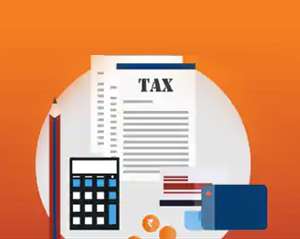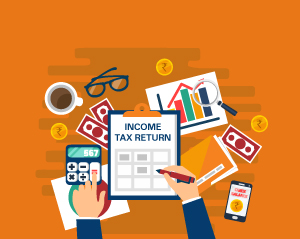Short for Value Added Tax, VAT is a type of indirect tax*. It is levied on various goods and services. VAT is imposed by the government and collected by the producer or seller. The producer then remits this tax to the government. VAT has been subsumed into Goods & Services Tax (GST) with effect from 1st July 2017, with only a few items such as alcohol meant for human consumption, petroleum products and others that still attract VAT.
How does VAT works?
VAT is levied by the government on the gross price of a product or service. It is collected by the producer or seller at each stage of production, distribution, as well as sale. VAT laws can vary across states and union territories. Additionally, certain products may be exempt from VAT.
How is VAT calculated?
VAT = Output tax – Input tax
Here,
- Output tax is paid by the consumer on the purchase of a product or service
- Input tax is paid by the dealer or producer on the purchase of a good or service for their business
Advantages of VAT
Below are some benefits of VAT:
- VAT removes tax-on-tax, which helps reduce the overall prices of goods that the end consumer has to pay
- The implementation of uniform VAT rates across regions enhances trade and ensures consistency
- VAT helps taxpayers save money, as they only pay tax when making purchase
- VAT provides the government with a steady and reliable stream of revenue
What is the VAT Registration Act?
Under the VAT Registration Act, all business organisations are required to register for VAT payments. Businesses can visit the official VAT website for registration. After a successful verification process, the company will be registered for VAT and assigned a unique VAT registration number.
What is the procedure for VAT online registration?
To register for VAT online, follow these steps:
- Visit the official VAT website
- Log in to your account
- Click on the "Registration" tab
- Fill in the required details of the business
- Upload copies of the necessary documents
- Once your application and documents have been verified, your company will be assigned a permanent VAT registration number
How does VAT help trade, consumers and government?
VAT can be helpful in different ways for traders, consumers and the government. Here’s how:
- For traders: Uniform VAT rates across regions help enhance trade and make the process of VAT implementation easier for traders
- For consumers: VAT helps reduce the prices of goods, as it eliminates the tax-on-tax effect. This allows consumers to save money when purchasing products
- For government: Since VAT is based on self-assessment by dealers, the government does not have to spend a lot of time and focus on VAT assessment. Instead, it can focus on tax collection
People like you also read...






